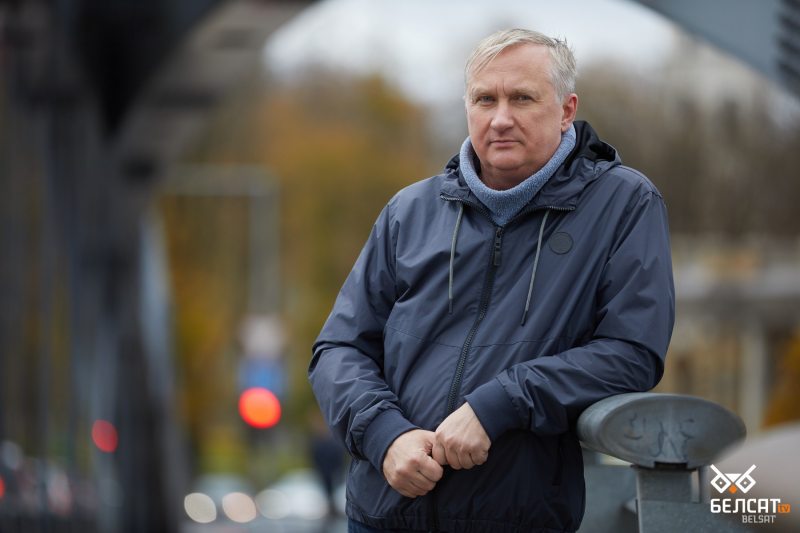"Innocent people are forced to appeal to the dictator for their release." Pavel Sapelka on the appeal for amnesty
In Belarusian penal colonies and prisons, political prisoners convicted on arbitrary charges face additional pressure: they are forced to confess to crimes they did not commit. This confession, however, is nothing more than a tool of propaganda and repression, cynically used by the Lukashenka regime to consolidate its power and destroy any manifestations of dissent. "Admission of guilt" is a condition for the early release of political prisoners, especially by pardon. Viasna human rights activist Pavel Sapelka explains what admission of guilt means in a pardon and whether this factor is taken into account in the rehabilitation of political prisoners.
Why are political prisoners forced to plead guilty in prisons?
According to the human rights activist, the Lukashenka regime is creating unbearable conditions in Belarusian prisons for those who have been arbitrarily convicted on political grounds.
"What does arbitrary mean? First of all, the fact that these people are convicted without being guilty, they have not committed acts that in democratic states, respecting the law and legal institutions, would be recognized as crimes and, even more, punishable by imprisonment. Among other things, the regime has completely cut off political prisoners from any possibility of early release provided by law, whether by commutation, parole or amnesty.
The only option for early release is to apply for a pardon.
"But even this is cynically exploited by the Belarusian authorities for propagandist purposes: innocent people are forced to appeal to the dictator for their release.”
The legislation (again - arbitrarily) establishes the rule of personal appeal of the convicted person, and also contains a rule that when considering applications for pardon the nature and degree of public danger of the committed crime, the personality of the convicted person and his attitude to the crime, his behavior, attitude to work (study), participation in the work of amateur organizations in places of deprivation of liberty, the period of served sentence, compensation for property and moral damage caused by the crime, payment of the income received by the convicted person during the imprisonment are taken into account.
"At the same time, the "opinion of the administration of the penitentiary institution or other body executing punishment or other measures of criminal responsibility" are also taken into account, and these bodies together with special services extort confessions from convicts - directly or by creating the above mentioned unbearable conditions", - Pavel Sapelka points out.
Incidentally, in the updated Criminal Executive Code the confession of guilt is a criterion by which the administration of the penitentiary institution certifies the convict.
"Thus, political prisoners are forced to admit guilt for something they did not do - often even those who did not admit guilt in court.
It is not yet possible to say what obligations will be imposed on those who will be pardoned - and there can be various possibilities, one of the types of pardon is, for example, substitution with a lighter sentence. In any case, those released will be placed under preventive supervision and their rights and freedoms will be restricted," says Pavel Sapelka.
Does the admission of guilt affect the rehabilitation of political prisoners?
As for the issue of rehabilitation of political prisoners, according to the human rights activist, it is now not as acute as the issue of release:
"People are less optimistic, the regime has held on and the restoration of justice has been postponed. Nevertheless, the reality is as follows: the rehabilitation of the innocently convicted and compensation for their damages will certainly take place, and these processes will not be influenced by subjective components: the confession or denial of guilt of the accused, especially if they are made under the influence of torture and other types of prohibited treatment".
Pavel Sapelka refers to Article 14 of the International Covenant on Civil and Political Rights: "If a person has been convicted of a criminal offense by a final judgment and his conviction is subsequently quashed or he is pardoned on the ground that a new or newly discovered fact undeniably proves a miscarriage of justice, the person who has suffered punishment as a result of such conviction shall be compensated in accordance with the law, unless it is proved that the said unknown fact was committed.
"The last proviso should not be misunderstood: the Covenant refers precisely to deliberate self-incrimination. The Belarusian Code of Criminal Procedure states: "when a person voluntarily incriminates himself in the commission of a crime". Therefore, the statement of the defendant's agreement with the prosecution in terms of qualification of actions does not apply to it".
Moreover, any form of "confession of guilt" after the sentence has become final, outside the judicial process - in penal colonies and pardon commissions - does not affect the issues of rehabilitation, the human rights defender adds.
"Even in the Soviet Union and after its collapse in the post-Soviet states, decisions on the rehabilitation of victims of Stalinist repressions were made without taking into account the confession of guilt, on the basis of objectively insufficient or non-existent evidence of guilt.
Finally, it is important to note that human rights activists are interested in these recorded "confessions" in only one capacity: as evidence of crimes and other gross violations of human rights committed by the regime's accomplices against political prisoners and other oppressed persons.”


















